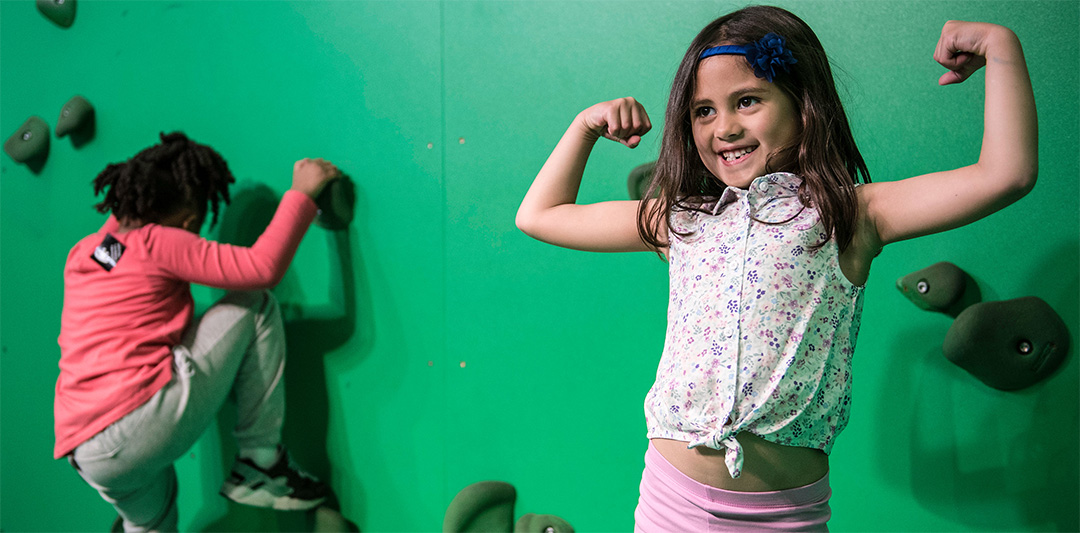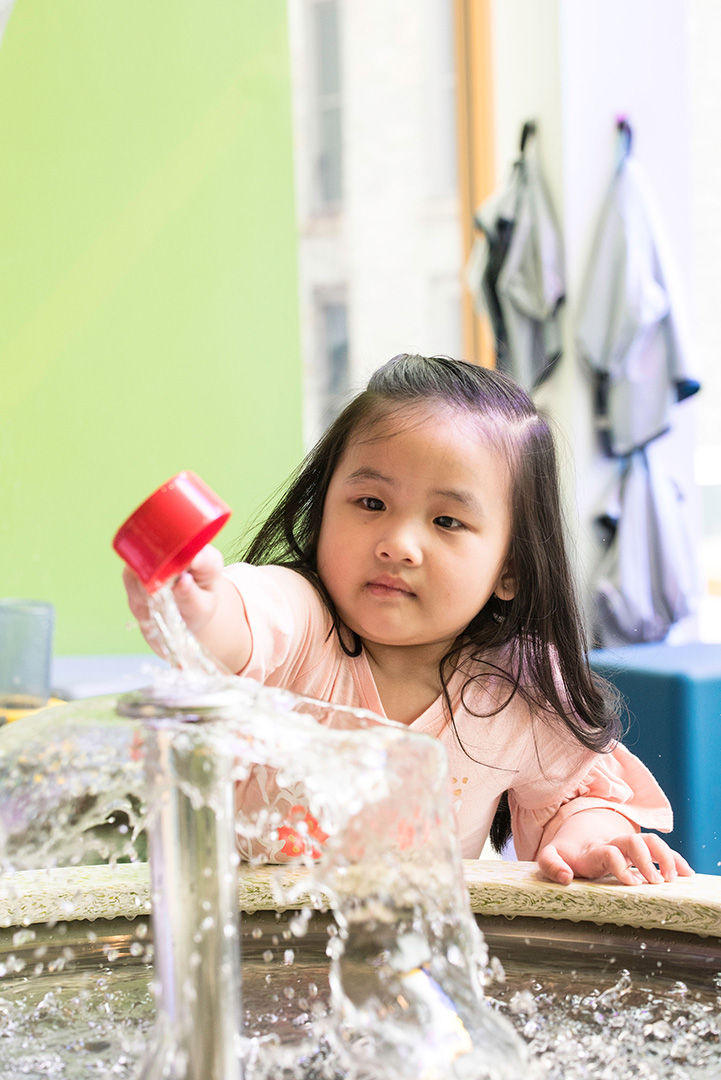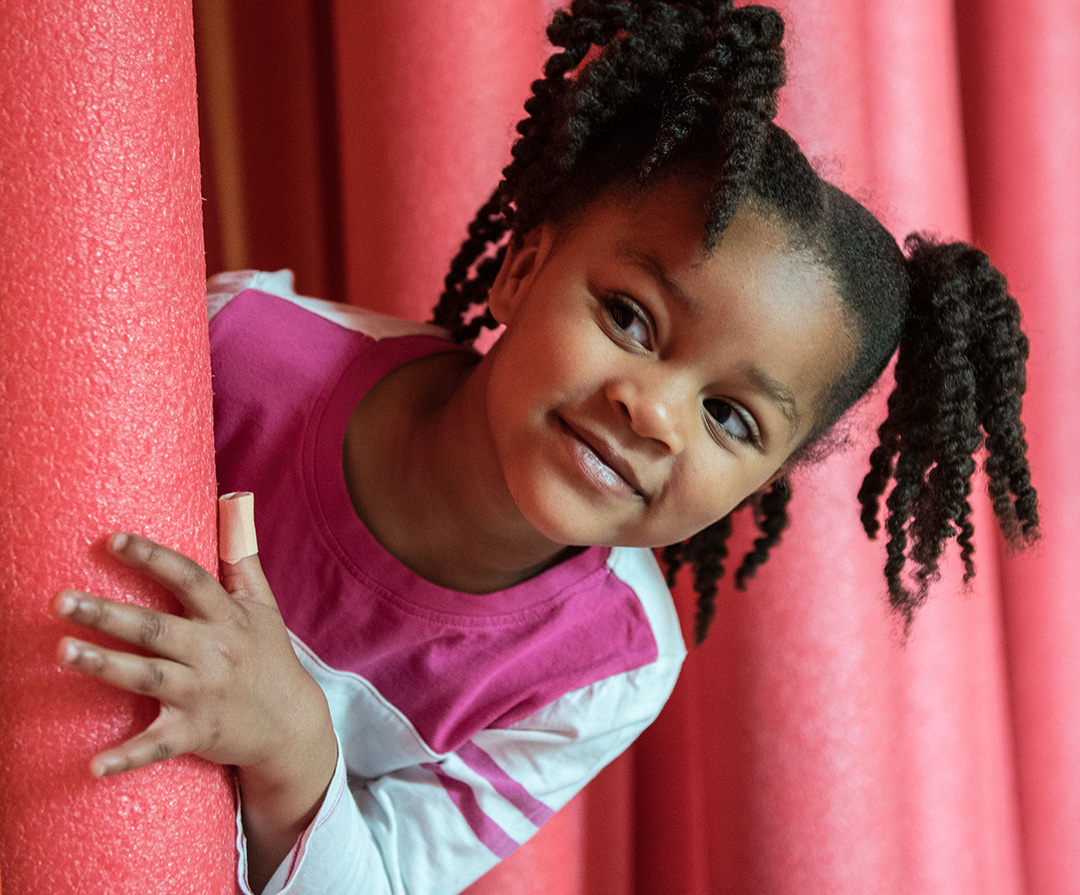
At Minnesota Children’s Museum, we believe in the power of play. Play is how children explore the world around them, navigate relationships, nurture curiosity, and find joy. This post is part of a series showcasing seven powers of play: confidence, creative thinking, critical thinking, self-control, collaboration, communication, and coordination.

“Play is often talked about as if it were a relief from serious learning. But for children, play is serious learning. Play is really the work of childhood.”
-Fred Rogers
Power of Play: Confidence
What it is:
Confidence is a kid’s belief that they can accomplish something, or attempt something, based on their own abilities and mindset.
What it looks like in action:
Kids who feel confident show enthusiasm about a task or activity, even if it presents uncertainty or challenge. They take responsible risks. They are persistent and upbeat, even when they don’t accomplish their goal right away. They don’t see failure as the final word, but believe in their ability to improve over time. They’re willing to try new things.


Why it matters:
Confidence is a kid’s buffer against challenges and setbacks. It’s what allows them to pop back up and try again. It’s also what pushes them to set goals because they believe they can achieve them. Kids who feel confident can beat back negativity and focus on what’s possible. They tend not to be overly demanding of external attention and validation, giving them more space to appreciate and support their peers.
How play helps:
Kids at play are free to set their own goals and their own limits, developing confidence on their own terms. Kids at play are also free to go back and forth between something that’s difficult and something they’re already good at, providing them the thrill of a challenge near the safety of a comfortable activity. Play also rewards confidence because new activities open up as new skills develop. There’s nothing like watching a confident kid fly across the monkey bars to inspire a less experienced child to build up their own confidence and give it a try.
At home or on the go, caregivers can enhance children’s confidence by:
- Modeling confidence and positive self-talk.
- Talking through your challenges so that kids see that no one is confident at everything, but we can all grow.
- Letting kids tackle frustrating situations on their own before stepping in to help.
- Embracing failures, theirs and your own, as opportunities to grow.

Play prompts & activities to support confidence:
- DIY xylophone musical instrument
- Take things apart (and maybe put them back together!)
- Journaling
- Sports and games of all kinds
Power of Play
Coordination
Power of Play: CoordinationAt Minnesota Children’s Museum, we believe in the power of play. Play is how children explore the world around them, navigate relationships, nurture curiosity and find joy. This post is part of a series showcasing seven powers of play:...
Creative Thinking
At Minnesota Children’s Museum , we believe in the power of play. Play is how children explore the world around them, navigate relationships, nurture curiosity, and find joy. This post is part of a series showcasing seven powers of play: confidence, creative thinking,...
Communication
Power of Play: CommunicationAt Minnesota Children’s Museum, we believe in the power of play. Play is how children explore the world around them, navigate relationships, nurture curiosity and find joy. This post is part of a series showcasing seven powers of play:...
(Self) Control
At Minnesota Children’s Museum, we believe in the power of play. Play is how children explore the world around them, navigate relationships, nurture curiosity and find joy. This post is part of a series showcasing the seven powers of play: confidence, creative...
Collaboration
At Minnesota Children’s Museum, we believe in the power of play. Play is how children explore the world around them, navigate relationships, nurture curiosity and find joy. This post is part of a series showcasing the seven powers of play: confidence, creative...
Critical Thinking
At Minnesota Children’s Museum, we believe in the power of play. Play is how children explore the world around them, navigate relationships, nurture curiosity and find joy. This post is part of a series showcasing seven powers of play: confidence, creative thinking,...